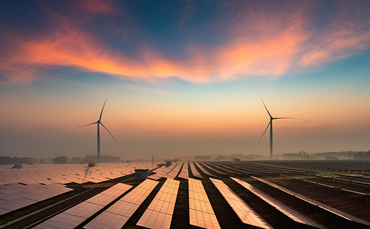
The overwhelming majority of the British public remain hugely supportive of the net zero transition and clean energy development, according to the latest Public Attitudes Tracker from the Department for Energy Security and Net Zero (DESNZ).
Worsening economic headwinds have triggered as series of media stories in recent months thsat have sought to blame the net zero transition for higher energy bills and wider economic challenges. But the latest polling suggests this narrative is struggling to gain traction with large majorities remaining supportive of climate action and clean energy development.
The latest survey in the long-running series polled more than 4,000 people between March and April 2023. It found that awareness of the concept of the net zero transition remained at 89 per cent, with almost half of people claiming they know at least a “fair amount” about it and 15 per cent saying they know “a lot”.
Moreover, DESNZ found 82 per cent of respondents were at least ‘fairly concerned’ about climate change, while 85 per cent agreed “if everyone does their bit, we can reduce the effect of climate change” – with more than half, or 55 per cent, strongly agreeing.
Moreover, 85 per cent of Brits said they support the use of renewable energy to provide electricity, fuel and heat, with solar energy the most popular technology ahead of wave and tidal, offshore wind, and onshore wind.
While the proportion of people expressing “strong support” for renewables decreased slightly for all types of energy between Autumn 2022 and Spring 2023, overall respondents were positive that renewable energy provides benefits to the national economy – with three quarters in agreement and four-in-five agreeing they should directly benefit communities where they are located.
However, awareness that renewables development could help curb energy bills in the near term remains relatively low. While 42 per cent of Brits said they anticipated short-term energy bill increases as a result of the renewable energy transition – down from 53 per cent this time last year – aound a quarter said they expected costs to stay the same, while just over one-in-10 believe bills are likely to decrease.
There were more encouraging results for renewables developers when the public was asked to consider the longer term impact of renewables projects on energy bills. The poll found that Brits were twice as likely to anticipate price decreases rather than price rises in 10 or more years’ time as a result of the shift towards renewables.
The survey also provided an update on public attitudes towards a wide range of different clean technologies.
Support for both wind and solar power development remained high at 78 per cent and 81 per cent, respectively, while 43 per cent and 54 per cent said they would support projects in their local area.
Meanwhile, overall awareness of the use of hydrogen as fuel rose slightly to 78 per cent, although the level of perceived knowledge remained relatively low, while two thirds of the public said they were aware of carbon capture and storage technologies.
In addition, two thirds of all respondents and 70 per cent of those living in owner-occupied homes, said they either already had or would be likely to consider installing solar panels in their home in the next few years, with a third of people living in owner occupier homes said they would definitely consider installing solar panels.
However, expense remains the main barrier for adoption among those interested in installing solar panels, with 70 per cent saying they were too expensive to install – up from 63 per cent in spring 2022, while a quarter claimed they look “unsightly”.
In response to a new question designed to gauge which actions Brits are taking as a result of increased energy bills, 82 per cent claimed they had taken at least one measure to reduce energy use. Almost half claimed they have reduced electricity or heat usage, while a worrying 27 per cent claimed they are doing so to an “uncomfortable level”.
Finally, almost 86 per cent of Brist said they were aware of the need to change the way homes are heated in order to reach net zero targets, though half claim to know just “a little or hardly anything” about the need for changes in domestic heating.
Keep up to date with all the latest green business news by signing up to the free Daily and Weekly BusinessGreen Newsletters.






